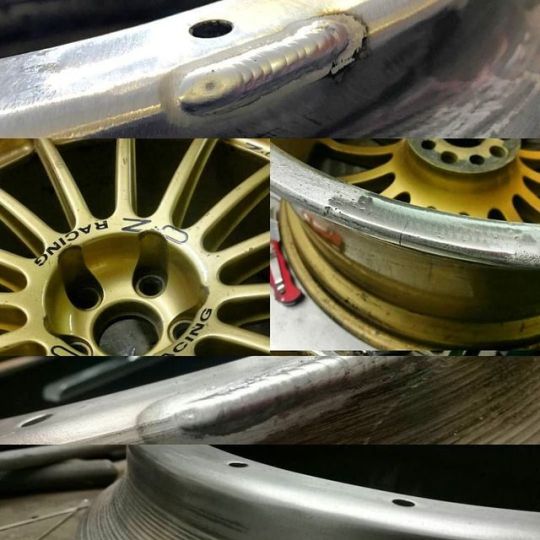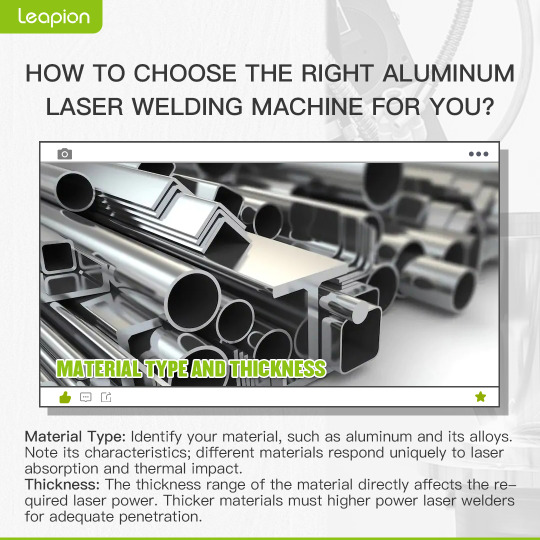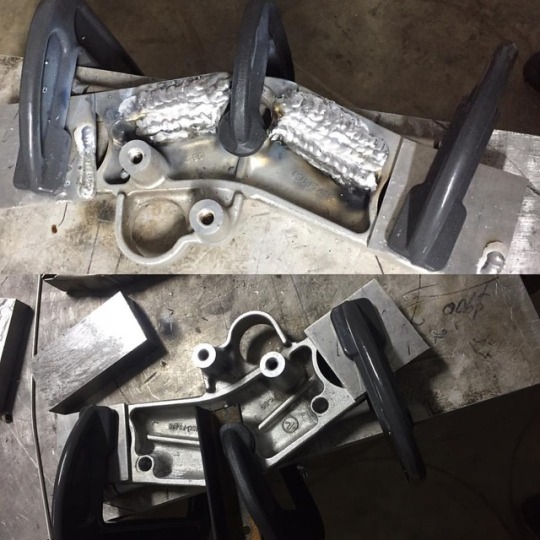#AlloyWelding
Text

How to choose the right aluminum laser welding machine
#laserweldingmachine#laserwelder#weldingmachine#MaterialIdentification#AluminumAlloys#MetalCharacteristics#LaserAbsorption#ThermalImpact#MaterialThickness#LaserPower#WeldingThickness#MetalProperties#AluminumWelding#AlloyWelding#MetalThickness#PowerRequirements#PenetrationDepth#WeldingTechnology#MaterialScience#Metalworking#LaserWelding#IndustrialApplications
0 notes
Text
How Long Do Alloy Welds Last?

The dazzling sheen of a diamond-cut alloy wheel, the sleek lines of a custom design – alloy wheels can truly elevate the aesthetics and performance of your car. But with their undeniable allure comes a crucial question: how long do alloy wheel welds last?
At JR Alloy Wheel Repair, we understand the concerns surrounding the longevity of repaired wheels. While we advocate for safety first and foremost, we also believe in transparency and informed decisions. So, let’s delve into the factors influencing the lifespan of alloy welds, dispelling myths, and providing you with a clear picture.
Beyond the Initial Fix:
Several external factors play a crucial role in determining the lifespan of a welded alloy wheel:
1.Damage Severity: Minor cracks or bends often require smaller, less intensive repairs, potentially extending the weld’s longevity. Conversely, severe damage necessitating complex welds might have a shorter lifespan.
2.Driving Habits & Conditions: Frequent encounters with potholes, curbs, or rough terrain put significant stress on the repaired area, impacting the weld’s longevity. Gentle driving habits and avoiding harsh conditions can help the weld last longer.
3.Maintenance & Care: Regularly inspecting your wheels and addressing any concerns promptly prevents further damage and extends the weld’s life. Maintaining proper tire pressure and wheel balancing are also crucial for optimal performance and longevity.
Our Intricacies of the Welding Process:
Not all alloys are created equal. The type of metal, the welding technique, and the technician’s skill – all play a crucial role in the strength and longevity of the repair. At JR Alloy Wheel Repair, we approach alloy wheel straightening with the utmost precision, ensuring your wheels regain their original shape and structural integrity.
Our meticulous process unfolds in several steps:
1.Inspection & Assessment:
Our expert technicians meticulously examine the wheel, pinpointing the damage’s extent and location. This involves both visual inspection and specialized equipment. In most cases, identifying bends or buckles doesn’t require tire removal.
2.Wheel Removal:
For proper access and manipulation, the damaged wheel is carefully removed from the vehicle. If necessary, we might temporarily replace the suspected buckled wheel to facilitate comparison and inspection during the driving test.
3.Wheel Heating (if required):
When straightening is necessary, the wheel undergoes controlled heating to soften the alloy, allowing for easier manipulation without compromising its structural integrity.
4.Hydraulic Straightening:
Specialized hydraulic equipment applies precise pressure to the damaged areas, gradually bending the wheel back to its original shape. Regular testing ensures the wheel flat spot is eliminated and the buckle is truly gone.
5.Cooling & Curing:
The wheel cools naturally, allowing the alloy to retain its new, repaired shape.
6.Refinishing (optional):
If the wheel requires more than just straightening, it’s refinished to restore its original appearance and protect it from future damage. This step is skipped if straightening is the sole service.
7.Rebalancing:
The repaired and refinished wheel is meticulously rebalanced to ensure proper weight distribution and smooth vehicle operation. This final verification stage confirms the wheel is perfectly straight and free of any buckles.
A Symphony of Factors:
However, the lifespan of an alloy weld extends beyond the initial repair. Several external factors play a crucial role, including:
The Severity of the Damage: Minor cracks or bends generally require less extensive repairs, potentially extending the weld’s lifespan. Conversely, severe damage necessitating more complex welds might have a shorter lifespan.
Driving Habits and Conditions: Frequent exposure to potholes, curbs, or rough terrain can exert significant stress on the repaired area, potentially impacting the weld’s longevity. Gentle driving habits and avoiding harsh road conditions can contribute to a longer lifespan.
Maintenance and Care: Regularly inspecting your wheels and addressing any concerns promptly can help prevent further damage and extend the weld’s life. Additionally, proper tire pressure and wheel balancing are crucial for optimal performance and longevity.
Time’s Uncertainty:
Quantifying the exact lifespan of an alloy weld is challenging due to the multitude of influencing factors. However, with proper repairs, responsible driving, and diligent maintenance, well-executed welds on non-critical areas can last for several years. Nevertheless, it’s important to remember that welds are never as strong as the original material, and continual stress or unforeseen impacts can lead to failures.
Transparency is Key:
At JR Alloy Wheel Repair, we believe in transparency. We will always provide you with an honest assessment of the damage and the potential lifespan of the repaired weld, considering all relevant factors. We prioritize safety and will never compromise on the integrity of your wheels.
In some cases, extensive damage or safety concerns might necessitate replacing the wheel entirely. While we understand this might not be the preferred option, we prioritize the safety of you and your passengers. Our team will guide you through the options, ensuring you make an informed decision that aligns with your budget and safety needs.
Partnering for a Smooth Journey:
At JR Alloy Wheel Repair, we are committed to providing you with the best possible service and ensuring your wheels remain safe and reliable. If you have any concerns regarding alloy welds or wheel repairs, please don’t hesitate to contact us. Our experienced technicians are happy to answer your questions and guide you through the process, ensuring you make informed decisions for a smooth journey ahead.
Remember, while we strive for longevity in repairs, safety always remains our top priority. By understanding the factors influencing the lifespan of alloy welds and partnering with a reputable repair shop, you can make informed choices and enjoy the aesthetic and performance benefits of alloy wheels with peace of mind.
FAQ
1.Can I drive on a slightly buckled wheel with a minor weld?It’s highly discouraged to drive with a buckled wheel, even if it has a seemingly minor weld. Even small issues can affect your car’s handling, stability, and tire wear, increasing accident risk. Additionally, driving on a damaged wheel can further worsen the bend, making repairs more expensive or impossible.
2.What factors affect the lifespan of an alloy wheel weld?
Damage severity: Minor damage requires less extensive repairs, potentially extending the lifespan.
Driving habits and conditions: Avoiding potholes, curbs, and rough terrain can help the weld last longer.
Maintenance and care: Regularly inspecting and maintaining proper tire pressure and wheel balance can extend the weld’s life.
Alloy type and welding technique: Different alloys and techniques can impact durability.
3.How much does it cost to get a weld repair on an alloy wheel?
The cost depends on several factors like the severity of the damage, the type of alloy, the complexity of the repair, and the shop’s expertise. At JR Alloy Wheel Repair, we offer transparent pricing and consultations to help you understand your options and costs.
4.Does my driving style affect the lifespan of a weld?
Absolutely! Frequent exposure to potholes, curbs, or rough roads puts stress on the welded area, potentially reducing its lifespan. Gentle driving habits and avoiding harsh conditions can significantly extend the weld’s longevity.
5.Are welded wheels as strong as new ones?
While properly executed welds can be very strong, they’re never as strong as the original material. It’s crucial to remember that welded wheels may have limitations and require extra care and monitoring. At JR Alloy Wheel Repair, safety is our top priority, and we will always advise you honestly about the risks and limitations of a repaired wheel.
Article Source : https://jralloywheelrepair.co.uk/how-long-do-alloy-welds-last/
0 notes
Photo

Just a quick reminder that we carry out crack repairs on alloy and magnesium wheels from just £25. . #alloywheelrepair #alloywheels #magnesiumwheels #tig #crackrepair #alloywelding #bespoke #fabrication #BrookFab #madeinni #northernireland
0 notes
Text

How to choose the right aluminum laser welding machine
#laserweldingmachine#laserwelder#weldingmachine#MaterialIdentification#AluminumAlloys#MetalCharacteristics#LaserAbsorption#ThermalImpact#MaterialThickness#LaserPower#WeldingThickness#MetalProperties#AluminumWelding#AlloyWelding#MetalThickness#PowerRequirements#PenetrationDepth#WeldingTechnology#MaterialScience#Metalworking#LaserWelding#IndustrialApplications
0 notes
Text

Material Type: ldentify your material, such as aluminum and its alloys
Note its characteristics; different materials respond uniquely to laser
absorption and thermal impact.
Thickness: The thickness range of the material directly affects the re-
quired laser power. Thicker materials must higher power laser welders
for adequate penetration.
#laserweldingmachine#laserwelder#weldingmachine#MaterialIdentification#AluminumAlloys#MetalCharacteristics#LaserAbsorption#ThermalImpact#MaterialThickness#LaserPower#WeldingThickness#MetalProperties#AluminumWelding#AlloyWelding#MetalThickness#PowerRequirements#PenetrationDepth#WeldingTechnology#MaterialScience#Metalworking#LaserWelding#IndustrialApplications#WeldingProcesses
0 notes
Photo

Hard work is done now to let this cool down on its own before we machine it flat and then drill some handlebar mount holes. These are just too thin to just drill and bolt risers too so we build them up first. #actigwelding #millerinfinity #instaweld #alloywelding
0 notes